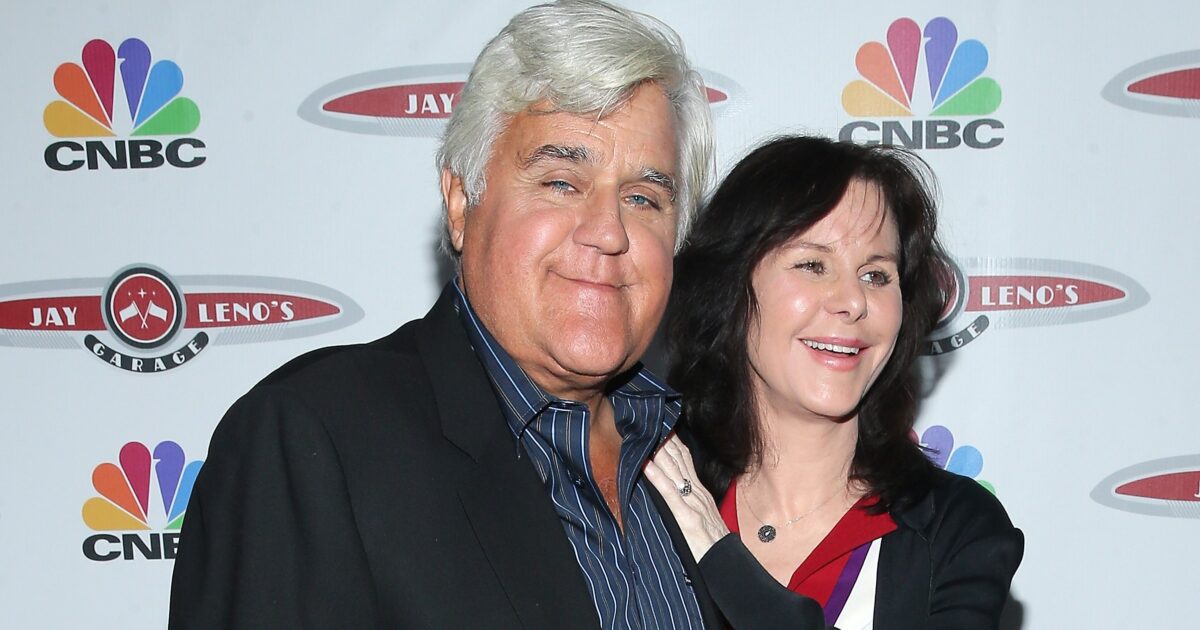Jay Leno is opening up about what day-to-day life looks like as a caregiver for his wife, Mavis Leno, following her diagnosis with advanced dementia earlier this year. In a new interview with People published November 10, the former Tonight Show host, 75, spoke candidly about prioritizing compassion, routine, and humor as he supports Mavis, 79.
“I’ve been very lucky in my life. My wife is fighting dementia and all that, but it’s not cancer,” Leno said. “It’s not a tumor, so I enjoy taking care of her.”
The comedian pushed back on the idea that caring for a loved one with a serious illness is a burden. “It’s not work, because people come up, and say they feel so sorry,” he explained. “I understand the sympathy, because I know a lot of people are going through it, but it’s OK.”
“I like taking care of her. I enjoy her company, and we have a good time. We have fun with it, and it is what it is,” Leno added, underscoring that the couple’s connection remains central to their routine.
Caregiving Isn’t “Work,” Leno Says
Leno noted that every long-term relationship includes challenging seasons, but he emphasized that the foundation of their decades-long partnership remains strong. “There are going to be a couple of years that are tricky” in any marriage, he said, reflecting on their union. Still, he called the “first 46” years of their relationship “really great,” a perspective that helps him stay grounded.
“But it’s OK. It’s not terrible. I’m not a woe-is-me person. I’m just lucky that I am able to take care of her,” Leno continued, crediting gratitude and presence over self-pity. The veteran host also acknowledged the practical side of caregiving, sharing that he’s thankful to be in a position to provide consistent care. “I’m very lucky,” he said. “I enjoy her company. As soon as this ride’s over, I’m going home and I’ll make her lunch.”
For fans who have followed Leno across late night and his automotive series, the comments reflect a familiar steadiness—part matter-of-fact, part warm humor—now channeled into a deeply personal chapter. His focus, he makes clear, is on maintaining dignity, routine, and companionship.
Conservatorship Confirms Mavis’ Care Plan
News of Mavis Leno’s advanced dementia diagnosis became public in April 2024. In the months that followed, a judge granted Jay Leno conservatorship of his wife, a legal step that ensures decisions about her medical and personal care are aligned with her needs and wishes.
According to People, Mavis’ lawyer stated that she was “in agreement” with the arrangement and emphasized she was “receiving excellent care with her husband,” Mr. Leno. The court backed that assessment during proceedings, with the presiding judge observing, “I think she’s in the least restrictive environment. I think she’s in very good care with Mr. Leno.”
The judge also offered reassurance directly to Leno regarding his approach: “Everything you’re doing is right,” the court told him, acknowledging the emotional weight of the moment. “I totally understand this is a difficult period.”
The conservatorship, while often complex in public perception, in this case underscores a collaborative care plan supported by legal oversight, medical guidance, and the couple’s own long-established partnership.
What Advanced Dementia Means
Advanced dementia is characterized by significant decline in cognitive functions, including memory, decision-making, and communication. As outlined by Medical News Today, the later stages can also involve physical challenges that affect mobility and overall health, requiring attentive, sometimes round-the-clock support.
Leno’s remarks about keeping structure—being present, sharing meals, and maintaining companionship—mirror best practices frequently encouraged by specialists: consistency, empathy, and a focus on quality of life. While he avoids dramatics, his steady, optimistic tone highlights how he’s navigating the realities of an illness that demands patience and care.
For a public figure accustomed to a busy schedule, the shift sounds less like a pause and more like a purposeful reorientation. Leno’s comments stress that, for him, caregiving is not an obligation so much as an extension of the life he and Mavis built together over nearly five decades.
A Partnership Built On Routine And Respect
Leno’s grounded approach reflects a marriage he characterizes as joyful and resilient, even now. The small details—like making lunch after a day out—carry as much weight as the big decisions. It’s a portrait of caregiving that prioritizes moments of normalcy and the quiet, daily ways of showing up for someone you love.
By centering Mavis’ comfort and acknowledging the support systems around them—from healthcare providers to the court’s oversight—Leno presents a clear, calm perspective on a difficult diagnosis. It’s an update that resonates with anyone who has navigated similar terrain, and a reminder that compassion often expresses itself through routine.
As he puts it, he’s “very lucky.” And at a time when many public conversations about dementia are framed by fear, Leno’s message is notably steady: gratitude, partnership, and the belief that good care—and good company—still define their life together.















































































































